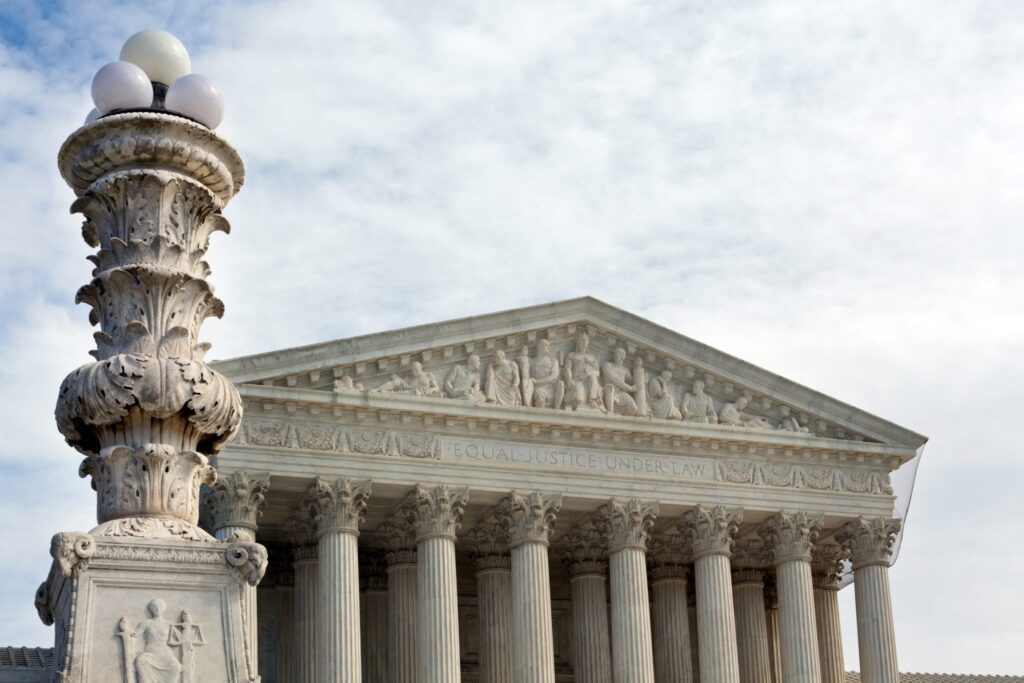Even if you’re not a lawyer, you’ve heard by now that Justice Scalia, one of the members of the United States Supreme Court, died late last week.
There are many facets to his passing: Who will be nominated to replace him? Will Senate Republicans be able to delay their approval of President Obama’s nomination until he leaves office? Should they risk the chance of Bernie Sanders or Hillary Clinton winning the election, and facing a nomination much more liberal? Is it off color to be talking about these things even before Scalia’s funeral?
Fortunately, many of these issues are too big to have much of an affect on the practice of criminal defense in the state of Maine. So instead, we’ll focus on the legacy in criminal defense that Justice Scalia left behind.
Scalia’s Unique Reading of the Constitution Often Made Him a Criminal Defense Hero
Justice Scalia championed a somewhat unique reading of the Constitution called “originalism.” He thought everything in the Constitution should be read according to it’s original meaning. This often required looking at dictionaries from the 1780s to determine exactly what a word meant at the time it was put in the Constitution, or understanding the context surrounding the writing of the document itself.
This often led Scalia to take a very literal approach to the Bill of Rights, including the Fourth Amendment, which prohibits unreasonable searches and seizures and so is the cornerstone of criminal defense law.
Scalia Helped Prevent the Government from Conducting Warrantless Searches
Some of Justice Scalia’s most important decisions came in the field of criminal defense and the Fourth Amendment.
In one case, he led the Court in declaring that police use of GPS devices to track cars was a “search” under the Fourth Amendment, and therefore required either a warrant or a valid exception to the warrant requirement. In so doing, Scalia resurrected an old way for the police to violate the Fourth Amendment – since the mid-1960s, only intrusions on someone’s “expectations of privacy” were considered “searches” that could run against the Fourth Amendment. Scalia pointed out that, even though they hadn’t surfaced in decades, a “trespass” against someone’s property still counted as a “search” under the Fourth Amendment. This greatly expanded the reach of the Fourth Amendment, and has protected countless people from unreasonable police searches.
In another case, Scalia led the Court in deciding that the use of thermal imaging was an unreasonable search without a warrant. Police had set up a thermal scanner on public property and detected unusual heat coming from someone’s house. They used this information to get a warrant to search, and found a marijuana growing enterprise. By deeming this to be an unconstitutional search, Scalia has prevented police from performing some very dystopian-sounding search techniques without getting a warrant first.
Conclusion
Justice Scalia was a prominent, though often abrasive, figure on the court. However, as conservative as he was on many other topics, he often sided with the liberal members of the Court on criminal defense issues. For this and many other reasons, he will be missed. Perhaps of greatest concerns to my current DUI clients is the fact that there are 3 cases pending before the US Supreme Court for argument concerning the validity of warrantless blood draws and breath tests and whether refusing to submit to a test, in the absence of a warrant, is a constitutionally protected right. Losing Justice Scalia may have far reaching effects on 4th Amendment issues going forward and may set back DUI defense practices decades, depending on who is chosen to replace Justice Scalia on the bench.


